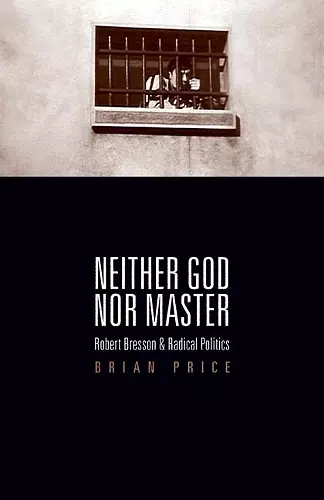Neither God nor Master
Robert Bresson and Radical Politics
Format:Paperback
Publisher:University of Minnesota Press
Published:3rd Mar '11
Currently unavailable, and unfortunately no date known when it will be back
This paperback is available in another edition too:
- Hardback£56.00(9780816654611)

The French auteur Robert Bresson, director of such classics as Diary of a Country Priest (1951), The Trial of Joan of Arc (1962), The Devil, Probably (1977), and L’Argent (1983), has long been thought of as a transcendental filmmaker preoccupied with questions of grace and predestination and little interested in the problems of the social world. This book is the first to view Bresson’s work in an altogether different context. Rather than a religious—or spiritual—filmmaker, Bresson is revealed as an artist steeped in radical, revolutionary politics.
Situating Bresson in radical and aesthetic political contexts, from surrealism to situationism, Neither God nor Master shows how his early style was a model for social resistance. We then see how, after May 1968, his films were in fact a series of reflections on the failure of revolution in France—especially as “failure” is understood in relation to Bresson’s chosen literary precursors, Dostoyevsky and Tolstoy, and Russian revolutionary culture of the nineteenth century.
Restoring Bresson to the radical political culture from which he emerged—and to which he remained faithful—Price offers a major revision of the reputation of one of the most celebrated figures in the history of French film. In doing so, he raises larger philosophical questions about the efficacy of revolutionary practices and questions about interpretation and metaphysical tendencies of film historical research that have, until now, gone largely untested.
"Neither God nor Master, which resituates Robert Bresson’s films in their complex relationships with literary, cinematic, and mass culture, addresses a major gap in film criticism. This exemplary book will reshape future debates about Bresson, and his place, not only in the French cinematic canon, but in French culture." —Scott Durham, Northwestern University
ISBN: 9780816654628
Dimensions: 216mm x 140mm x 15mm
Weight: unknown
264 pages